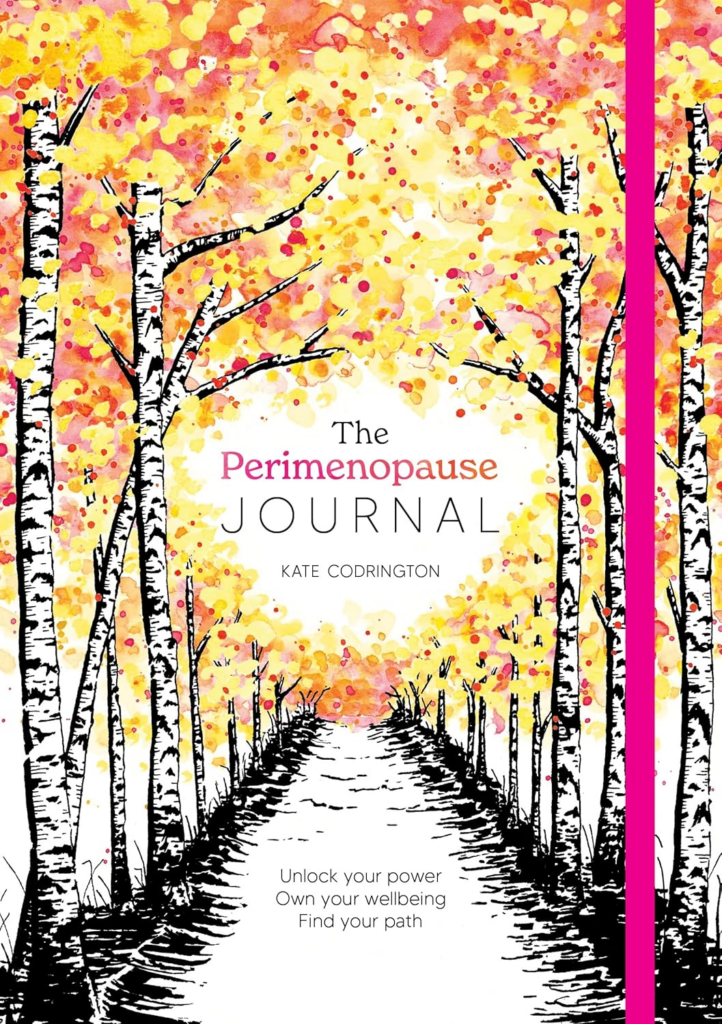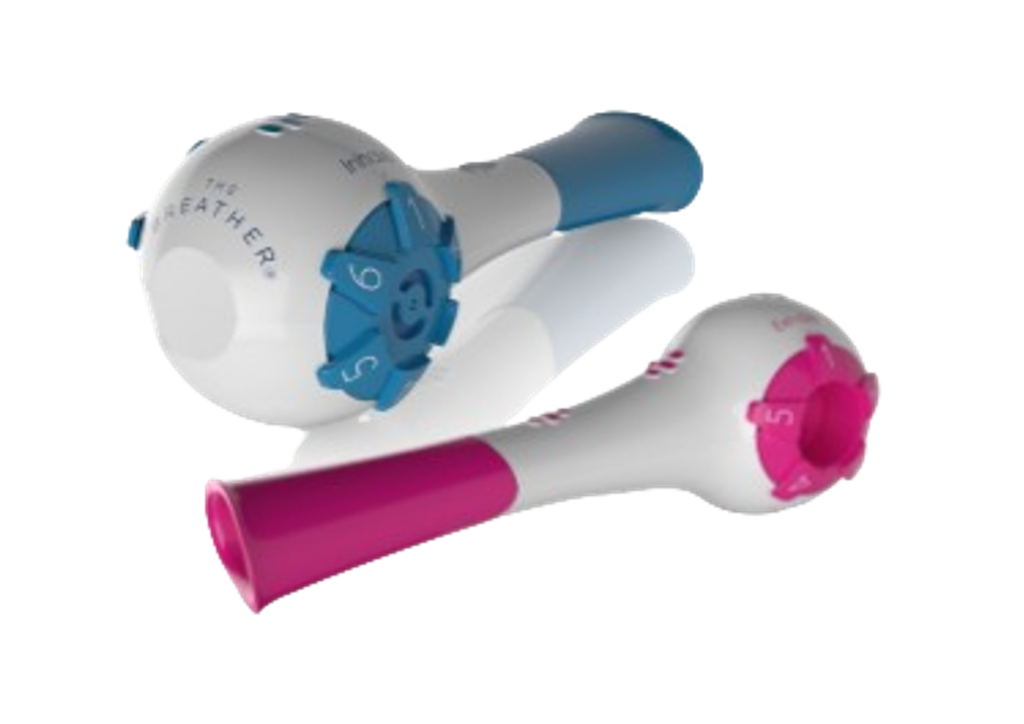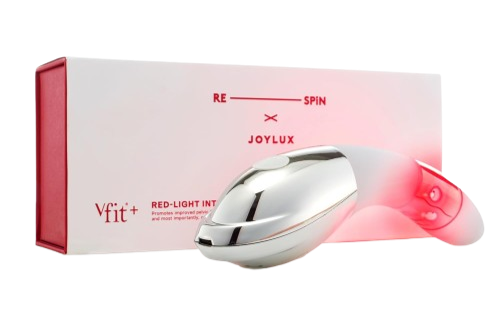Perimenopause can be a challenging and often perplexing stage in life, with changes that, for many of us, can feel sudden and unexpected. From fluctuating hormones to sudden shifts in energy, spotting the symptoms early is key to managing and navigating this transition with grace. Understanding perimenopause symptoms empowers you to take control of your health and explore solutions that support your well-being, helping you move through this phase with greater ease and confidence.
In this guide, we’ll break down how to spot the early signs of perimenopause and how you can find drug-and-hormone-free relief through lifestyle changes, natural remedies, and even innovative products designed specifically for women in this transitional period. Whether you’re just starting to notice changes in your body or you’re already deep into the perimenopausal phase, this guide will help you take the next steps toward feeling your best again.
What is Perimenopause?
Perimenopause is the phase leading up to menopause. It typically starts for women in their 40s and can last anywhere from a few months to several years. During this time, your body’s hormone levels—specifically estrogen—begin to fluctuate, which causes a wide range of symptoms. It’s important to know that perimenopause is a natural part of aging, and while the symptoms can be challenging, there are plenty of natural ways to manage them.
Common Perimenopause Symptoms: What to Look For
Knowing the symptoms of perimenopause is the first step in managing this transition. Since symptoms can vary greatly from woman to woman, it’s important to keep an eye on how your body is feeling. Here are some of the most common perimenopause symptoms and natural remedies to consider:
Irregular Periods
One of the first signs that you might be entering perimenopause is a change in your menstrual cycle. Periods might become heavier or lighter, and the time between them might get shorter or longer. In my case, I remember noticing that my cycle began to shift, and I started keeping track of it. It was confusing at first, but it helped me realize that my body was going through changes. If your period is off track, it could be an indicator of perimenopause.
Natural Relief: Keeping a journal, such as the beautifully-illustrated Perimenopause Journal by Kate Codrington allows you to set intentions, track your symptoms each cycle and help you navigate through the chaos of declining hormones. Writing down your experiences can provide clarity, helping you recognize patterns in your mood, energy levels, and physical symptoms. It also serves as a safe space for self-reflection, encouraging mindfulness and emotional processing during this often unpredictable phase. I only wish I knew about it when I started experiencing perimenopause symptoms, but alas, it’s never too late to start prioritizing your well-being and understanding your body better, as the insights gained can still be invaluable for future health journeys.

$22.99
Hot Flashes and Night Sweats
Hot flashes are often the hallmark of perimenopause symptoms, and I can’t tell you how many women I’ve spoken to about the overwhelming heat that hits unexpectedly. A hot flash might make you feel like you’re suddenly overheated, even in cool environments, often followed by night sweats that can disrupt your sleep. There’s nothing quite like waking up drenched in sweat at 3 a.m., but there are ways to reduce the discomfort.
Natural Relief: Black Cohosh Tea is a well-known natural solution for easing hot flashes. Discovered more than two centuries ago by Native Americans, this herb has been used to settle both menstrual cramps, and physical menopausal symptoms. If the herbs don’t cut it, products like the Ranvoo Aice Lite are designed to target this very issue. This cooling device can help you manage hot flashes by providing relief in real time, with cold superconducting plates to cool your skin and help you feel more comfortable during those sudden temperature spikes. It’s a small but mighty device that can make a huge difference when hot flashes strike.

$219.00
Mood Swings and Irritability
Changes in hormone levels can significantly affect your mood, causing irritability, anxiety, or even sadness. One minute you might feel on top of the world, and the next, you’re in tears over a minor issue. These mood swings are common during perimenopause, and they’re completely normal. For me, my irritability was the first thing that clued me in. It wasn’t my typical self, and I knew something was going on hormonally.
Natural Relief: Sometimes, you just need to hit the reset button. Ashwagandha extract is widely known for its calming and mood-stabilizing effects. It lowers cortisol, also known as the “stress hormone”, helping to reduce anxiety, mood swings and irritability. Diffusing lavender in your bedroom or adding a few drops to your pillow at night can also help calm your nerves and improve your emotional balance. If you’re still struggling with your emotions, tools like the Muse 2 guided meditation headband can be a game-changer. It helps you center yourself by providing real-time biofeedback that lets you track your relaxation progress. It’s an easy way to calm your mind, even when perimenopause seems to be throwing all sorts of emotions your way.

249.99
Sleep Disruptions
And let’s not forget sleep disturbances. You may find yourself waking up at 3 AM pondering life’s biggest mysteries: Why do socks disappear in the dryer? Does anyone really need that many throw pillows (answer: YES)? Is AI plotting against us? If you find that you’re waking up multiple times during the night or having trouble falling asleep, you’re not alone. Hot flashes can disrupt sleep, but even if you’re not experiencing those, the hormonal shifts alone can lead to restlessness.
Natural Relief: To naturally support your sleep, consider sipping on a warm cup of lemon balm tea before bed. Lemon balm increases GABA activity, a neurotransmitter that promotes relaxation and reduces nervous tension. Valerian root is another natural option often used for its calming effects and ability to improve sleep quality. Not effective? This is where products like the Apollo Neuro Sleep Aid come in. This wearable device uses gentle vibrations to help regulate your nervous system and promote better sleep. It’s a non-invasive solution that can support your body in winding down and achieving a restful night’s sleep.

$349.99
Brain Fog and Memory Issues
Another common perimenopause symptom that often gets overlooked is brain fog. One moment, you’re confidently striding through life, and the next, you’re staring blankly at your phone, convinced it’s playing hide-and-seek (Spoiler alert: It was in your hand the whole time!). You might find yourself forgetting why you walked into a room or struggling to recall that one friend’s name who always seems to pop up at parties.
Natural Relief: While brain fog may feel like an uninvited guest during perimenopause, there are ways to clear it out. Ginkgo biloba is a herb known for its cognitive benefits, and some studies suggest it can improve memory and focus. Adding green tea to your routine is another natural solution. Rich in antioxidants, green tea can boost brain function while keeping you alert. Pairing this with light mental exercises or mindful practices that assist with relaxation and stress reduction can provide relief. Guided breathing products can also be incredibly effective, such as the The Breather, promotes mindfulness and relaxation through belly breathing, strengthens both inspiratory and expiratory muscles for better respiratory health and is backed by studies showing a myriad health benefits like better sleep and reduced lung age.

Diaphragmatic Breathing Trainer
$49.95
Vaginal Dryness and Pelvic Health
One of the perimenopause symptoms that often doesn’t get enough attention is vaginal dryness. Lower estrogen levels can lead to discomfort during intimacy, and pelvic floor muscles can weaken, leading to other issues like urinary incontinence. It’s essential to know that this is completely normal, even during perimenopause.
Natural Relief: To combat vaginal dryness, try incorporating vitamin E supplements or using natural coconut oil as a lubricant. Pelvic floor exercises, like Kegel exercises, can also help strengthen muscles in this area and improve overall pelvic health. The Joylux x Respin vFit, developed with menopause queen, Halle Berry, is a product designed to promote pelvic floor health and combat vaginal dryness. This smart device uses light therapy and gentle stimulation to support pelvic health. It’s an excellent option to keep in mind if you’re experiencing these symptoms and want to take a more holistic approach to pelvic care.

Red Light Pelvic Floor Health Device
$495
How to Spot Perimenopause Symptoms Early
It’s important to keep track of any changes you’re noticing. The earlier you identify perimenopause symptoms, the easier it will be to manage them. I highly recommend keeping a journal or using a tracking app to record things like your period cycle, hot flashes, sleep patterns, and mood swings. Tracking will help you spot trends and allow you to better communicate with your healthcare provider.
Also, don’t hesitate to talk to your doctor about blood tests that can confirm whether you’re in perimenopause. These tests measure hormone levels and can give you a clearer picture of what’s going on in your body. One great option for this is the Proov Empower Perimenopause Test Kit. This home test is designed to detect hormonal shifts and can help confirm whether you are entering perimenopause. It gives you personalized insights that can be helpful in understanding your specific stage of this transition. Taking this test can give you more confidence in tracking your symptoms and speaking with your healthcare provider about next steps.
Finding Relief from Perimenopause Symptoms
While it might seem overwhelming, small changes in your daily routine can make a huge difference in how you feel during perimenopause. Exercise, for example, is a great way to improve mood, manage weight, and get better sleep. Whether it’s a brisk walk, yoga, or strength training, staying active can significantly reduce many of the symptoms of perimenopause. Additionally, a healthy diet can help balance hormones and support overall well-being. Focus on eating nutrient-dense foods like leafy greens, whole grains, and healthy fats to nourish your body.
While most symptoms of perimenopause are manageable with lifestyle changes and supportive products, it’s important to consult with a healthcare provider if symptoms become severe. If you’re dealing with extreme mood swings, heavy periods, or sleep disturbances, your doctor can guide you toward additional treatments, including hormone therapy or non-hormonal options.
Embrace Perimenopause with Confidence
Perimenopause is a natural transition, but that doesn’t mean you have to face it alone. By recognizing perimenopause symptoms early, adopting a healthy lifestyle, and utilizing innovative drug-free solutions and supplements mentioned above, you can manage this time in your life with confidence. The key is to listen to your body and take small steps to ensure your comfort and well-being.
Remember, you’re not just surviving perimenopause—you’re thriving. With the right support and the right tools, you can embrace this stage of life with ease and positivity. Take it one step at a time, and know that you have options for relief every step of the way.

